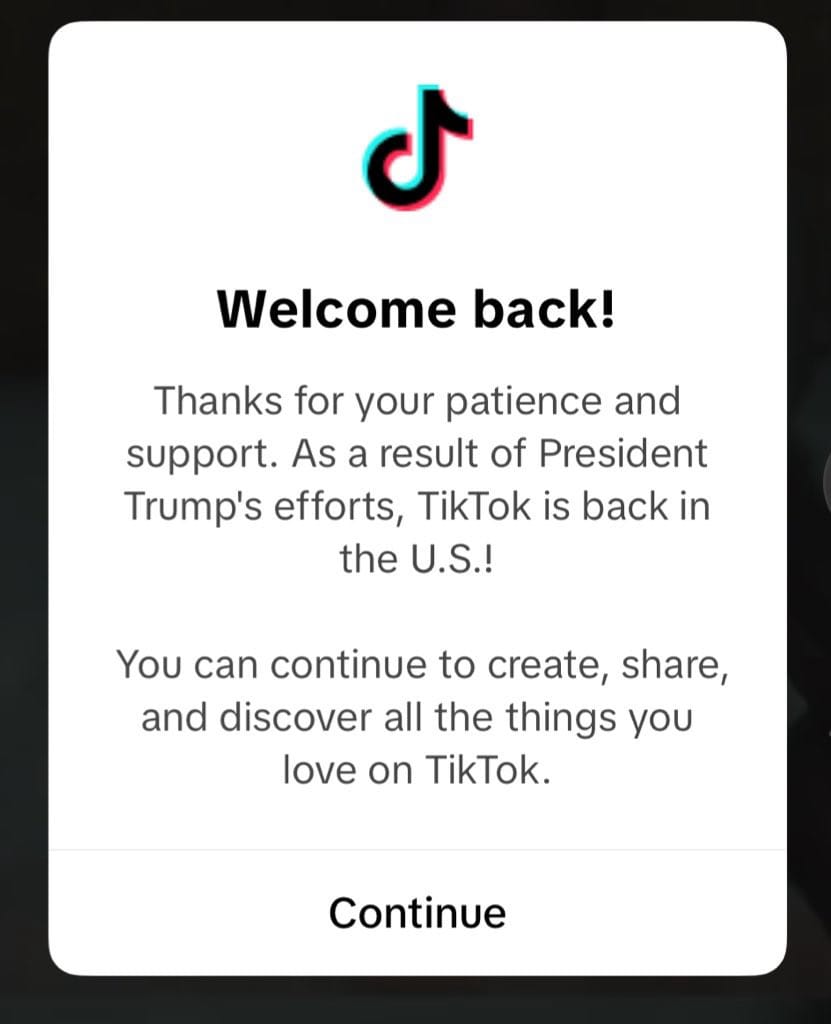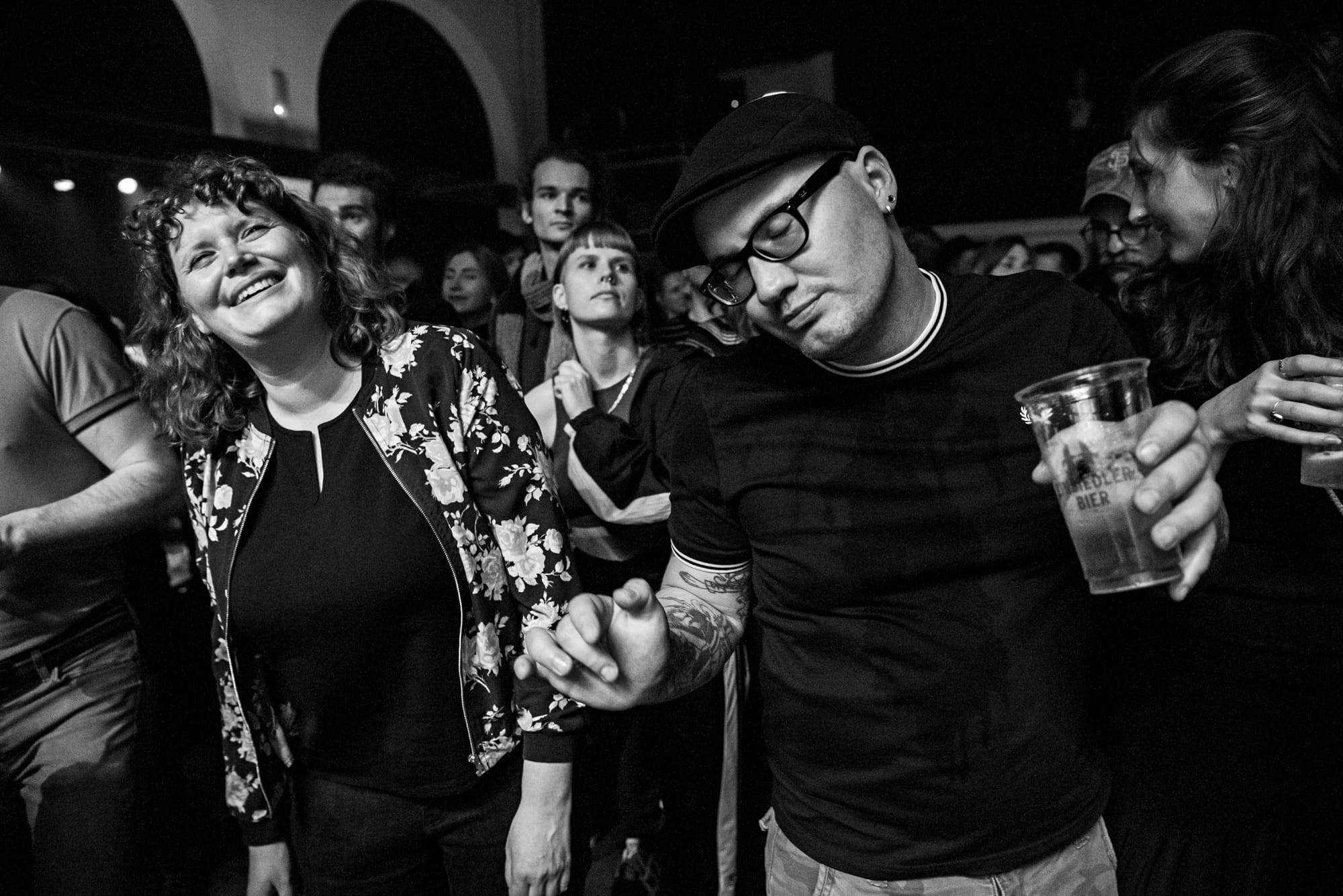Some days ago, I published a plea to musicians to rebuild their spaces in the digital infrastructure. It was a short reaction to Meta‘s latest changes to their moderation policies, which now allow users to refer to LGBTQ+ people as mentally ill or to women as household objects. I don’t think I need to explain further how devastating these changes are.
However, I also want to provide a more holistic view of the local music ecosystem and the impact of tech and societal forces to underline the need for significant changes. I have to emphasise the interdependence between different actors in the local music scene. Artists, labels, agencies, venues, music journalists, and music fans are all connected and feel a variety of related pains.
There’s simply no easy fix for one of these parties; we need to tackle it systematically.
A Brief History
But why do I even think that we’re at a critical inflexion point right now? Because the problems in the local music scene have been festering for a while now. To illustrate the need, I unfortunately have to deploy a brief (and heavily oversimplified) history lesson.
In the past 25 years, digital technology has disrupted music in many ways. We have moved from physical records to digital downloads and ended up in the era of streaming, where the vast majority of artists earn next to nothing.
The rise of social media also uprooted not only music reporting but journalism as a whole. Because the advertising revenue follows eyeballs and precise data.
However, for music journalism, in particular, whose role of buying advice was already tarnished by music streaming, social media again seemingly erased the role of intermediary between fans and artists.
The COVID-19 pandemic devastated an already fragile live music scene. Recovery from this existential shock is still ongoing, and many venues seek life support via crowdfunding.
And so we’re presented with a death spiral reality today: Artists struggle to make a living wage. Venues have to cancel shows or, worse, close down. And indie music is almost non-existent in most national media, with some volunteer-run blogs holding the line.
From Utopian Vision to Autocratic Dystopia
Look, I know this all sounds utterly depressing and may come across as some kind of tech panic. But I‘ve to thank the internet for everything: my career, many of my relationships, and ultimately, the existence of Negative White.
Social media, in particular, has prompted Negative White’s growth. However, what started as a relatively even playing field deteriorated into a swirl that sucks the life out of any creative opportunity because these platforms have an intrinsic desire to keep you there for as long as possible. I’ve previously explored algorithms’ impact on culture.
But at least you could arrange yourself somehow with that reality. Dance a bit for the algorithm puppet master to get a bit of reach. By no means were these platforms perfect utopias before.


Bizarre propaganda move by TikTok in the US.
However, we now experience the fallout of having only a few significant platforms controlled by a bunch of weirdo and spineless billionaires. The opportunists they are, they all bend the knee so quickly and willingly to Donald Trump and his loon goons, superimposing whatever the fuck is going on over there onto the world via their global corporations.
Autocratic politics get deeply intertwined with these platforms, perfectly illustrated by the dumpster fire formerly known as Twitter, where one with a humanistic-democratic worldview can’t reside anymore without performing astounding cognitive acrobatics.
Now, Meta is willing to go down a similar path. As users, we must consider whether to continue giving our attention and content to a platform willing to subject the most vulnerable people to even more harm.
The bizarre behaviour of TikTok in the USA following the ban also signifies the pandering towards authoritarianism. It was an outright propaganda move to make Trump look like the liberator.
Unparalleled Accessibility
Again, deeply tied to the digital transformation is how most people consume music today: streaming services. And let’s be clear out of the gate: none of them is particularly charitable towards the musicians. But I, too, appreciate the easy access to almost all of the world’s music.
But streaming is a business of scale: Lure as many people in with low prices, then slowly raise the prices. Which we’ve seen happen over and over already. But still, streaming services lose money—with Spotify turning in its first profit on the back of demonetising over 60% of the songs and laying off 1200 employees. All while Spotify’s founder sold off a massive chunk of his shares and is richer than any musician.
And naturally, music streaming is also dominated by algorithms, shattering any larger collective cultural consciousness. It’s getting harder and harder to break through as an artist, leaving venues and festivals with fewer headliners and rising costs for those stars who still can pull significant crowds.
Live Music Luxury
While access to music, at least as a listener, is unparalleled, seeing your favourite artists or visiting a festival live has become more of a luxury. For bigger shows, it’s nothing special anymore to pay a couple of hundred bucks, leaving people with less money for cultural activities.
Again, similar to streaming, the few top shots take the largest chunk of money spent on live music experiences, leading to smaller, independent venues having even more trouble filling their floors. If these locations close down, newcomers are left with even fewer opportunities to present themselves.

A Dire Situation
So, that’s how we end up here: Musicians are struggling to make a living. Venues are struggling to keep their doors open. Music journalism is struggling to fund itself. With fans confronted with rising prices. And all the money flowing to the top—to a few big artists, to a few unethical corporations.
It seems like an unbreakable death spiral, the wet dream of the ultra-libertarians who see music as another commoditised good and would trade in actual musicians with AI-generated slop in a heartbeat. Mikey Shulman, co-founder and CEO of the generative AI music platform Suno, recently voiced the most fucked-up take: „I think the majority of people don’t enjoy the majority of the time they spend making music.“ From what I hear from musicians, the opposite is true: Most of them want to spend more time making music compared to having to manage social media.
And just imagine the sheer waste generated by people who have zero interest in actually putting in the time to learn. Who wants to listen to that, really?
Investing Locally
The only way to at least attempt to break this vicious cycle is cooperation. Admittedly, it‘s hard to foster a sense of community in an already fractured landscape, especially in a country like Switzerland. But it‘s possible: We‘ve seen successful and sustainable solutions like the crowdfunded purchase of the Albani Music Club.
Here‘s a riff of initial ideas:
- Venues, concert promoters, and local music media can invest in strategic and long-term partnerships. For example, reduced ticket fees for paying readers or discounted subscriptions for member-funded venues.
- Music publications should focus on highlighting local artists rather than international acts already garnering a lot of attention.
- Artists and labels can spend a portion of their marketing budgets with local media instead of fuelling the ethically increasingly indefensible Silicon Valley mollochs.
- Music fans control many levers. Drowned In Sound has already put together a handy list. In short, buy music and merch, go to concerts in local venues, and support local media.
Tough Times Ahead
I’m not gonna lie: You can’t expect a walk in the park. The major internet platforms spent years and millions to optimise their experience. Alternatives come with more friction, and the outlook to rebuild everything again seems daunting.
But today, it’s about more than creating a sustainable ecosystem for local indie music. It’s about human and democratic values, about moral and ethical decisions. Reclaiming and rebuilding becomes a form of resistance. We need to overcome insignificant differences or petty-mindedness to come together.





